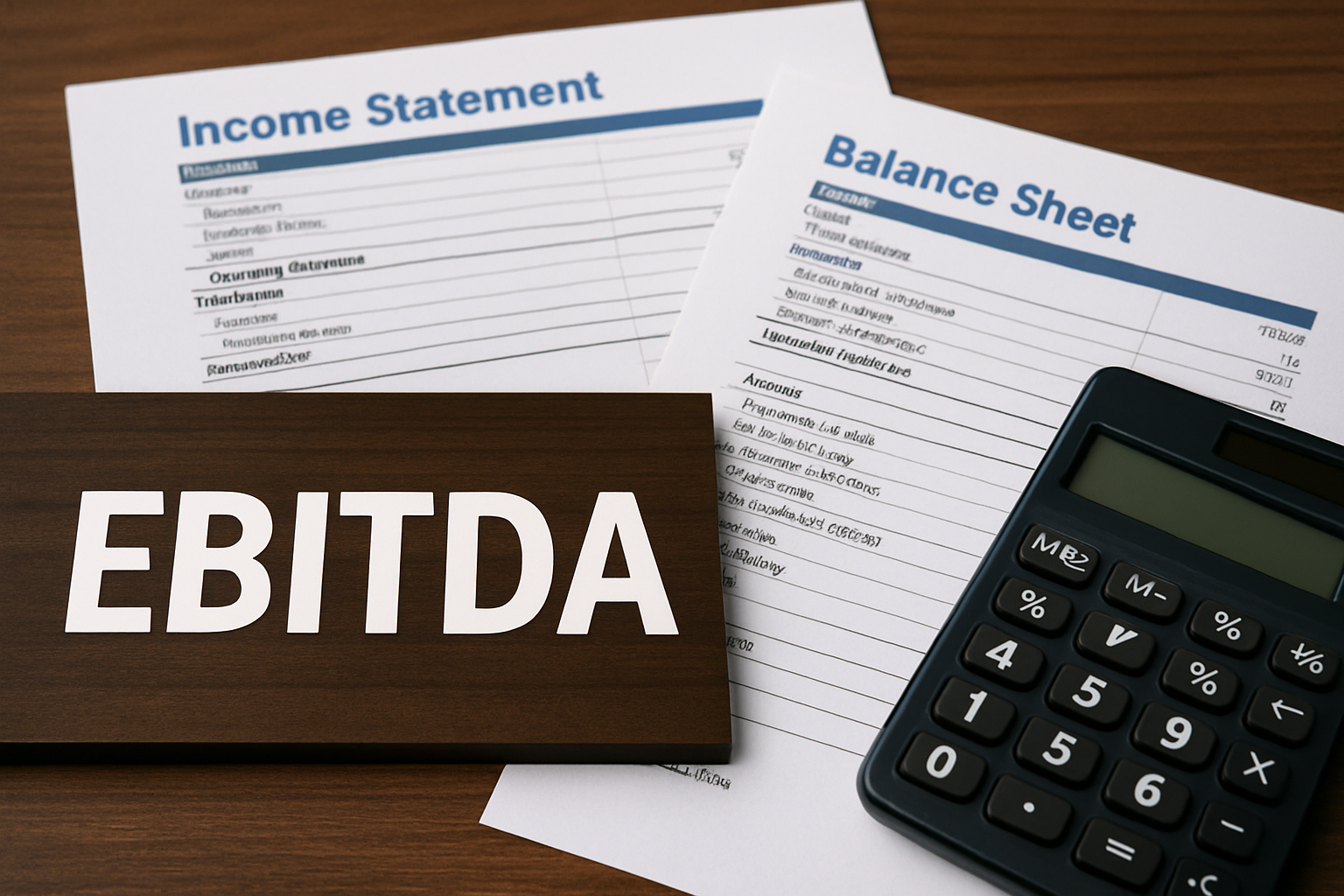Blog

If you’re running a Shopify-based business and you’re still not sure whether you should be using cash or accrual accounting, this is the breakdown you actually need.
The Basics: Cash vs. Accrual (Plain English)
Cash basis accounting means nothing touches your books until it touches your cash account. You don’t record a sale until the money shows up in your bank.
Accrual basis accounting means you record the transaction when it actually happens — not when the cash moves. If you ship a product today but don’t get paid for 30 days, you still record the sale today. You record it as accounts receivable, then swap that out for cash when it hits the bank.
What Works Best for E-Commerce
For most e-commerce businesses, the right answer is accrual— or at least a modified accrual system.
If you’re selling DTC and don’t have receivables, that’s one thing. But you do have inventory. And inventory is likely your single largest asset, and your biggest expense is the cost of that inventory when it is sold.
You also probably have accounts payable — vendor terms, delayed payments, etc. If you’re not recording those, you’re missing critical parts of your financial picture.
So even if you don’t have receivables, you still need accrual for payables and inventory. Without it, your books aren’t giving you the full story.
Why Cash Basis Gets Dangerous at 7 Figures
Once your business scales, the cracks in cash basis accounting start to show.
Say you start selling wholesale. Larger orders, delayed payments. If you’re not recording sales when they happen, your revenue is disconnected from reality.
Same thing on the inventory side. More sales means more inventory. More vendor terms. You need to know how much cash is tied up in product and what you owe vendors. You can’t track that without accrual accounting.
Sticking with cash basis when you’re at or above seven figures means you’rerunning a complex business on a bookkeeping method built for lemonade stands.
When Cash Basis *Might* Be Okay
There are rare cases where cash basis works. Usually it’swhen:
- Your inventory is homogenous (like bulk vintage clothing)
- You don’t sell wholesale or give customer terms (your customers pay when or before they get the items)
- You pay for inventory up front (no payables)
And even then, you’re limited in how much insight you can get. Cash basis meansyou only see what’s happening when the money moves — but a lot happens beforeor after that.
So yes, the IRS allows some businesses to expense inventory as they buy it —but for most e-commerce brands, accrual is the better long-term choice.
Still using cash basis accounting? Or unsure if your books actually reflect reality? Lonely, and just want to talk to someone? Book a call and let's chat!

If you’re running a Shopify-based business — or thinkingabout selling one — you’ve probably heard the term “EBITDA” thrown around. But what the hell is it actually measuring, and why does it matter? This post breaks it down in plain english.
What Is EBITDA (In Plain English)
EBITDA stands for Earnings Before Interest, Taxes,Depreciation, and Amortization.
It’s a way to measure the cash flow generated by the operations of the business, without the noise of non-operational accounting entries.
By backing out interest, taxes, depreciation, and amortization, you’re removing costs that aren’t directly tied to day-to-day operations and would look totally different under different ownership.
It gives you a number that reflects how much profit the business actually produces from operations — a useful way to compare performance across companies, time periods, or potential buyers.
Why EBITDA Matters If You're Selling (Or Scaling)
When you're valuing a business, one common method is toapply a multiple to EBITDA. A software company might be worth 20× EBITDA. A manufacturing business might go for 10× (bote these are just for illustration, please reach out if you want an actual range for your company).
The idea is to look at comparable businesses, what they sold for, and how that sale price relates to their EBITDA. Then you apply a similar logic to your business to get an estimate of what it might be worth on the open market.
Yes, there are other valuation methods — based on revenue, assets, and sometimes just hope and dreams. But EBITDA gives you a cash-based, semi-objective number you can work from.
Normalization vs. Manipulation
Let’s talk about a dirty little secret: most small business owners run some personal expenses through their business.
That conference in San Diego? You stayed three extra days. Did you reimburse the company? Probably not.
This is where “normalizing” EBITDA comes in. You add back expenses that technically hit EBITDA but aren’t really business-related or wouldn’t existunder new ownership — travel, meals, vehicle expenses, etc.
So is EBITDA manipulated? Sometimes, yeah — but it’s more often just adjusted to reflect the true economics of the business.
What founders *should* be worried about isn’t manipulation — it’s accuracy. Most small businesses don’t intentionally fudge their numbers — they just have sloppy books. Bad bookkeeping, unreconciled accounts, missing entries. That’s what really skews EBITDA.
How to Calculate EBITDA in a Shopify Business
Step one: clean your books. If your inventory, receivables,or payables are wrong, your EBITDA will be too.
For product-based e-commerce companies, COGS is your biggest expense and inventory is usually one of your biggest assets. If those aren’t tied out, the whole foundation crumbles.
Once your balance sheet is clean, identify any expenses that should be normalized — personal travel, car payments, anything that wouldn't show up under different ownership.
Then do the math:
- Start with Net Income from your P&L
- Add back Interest Expense
- Add back Income Taxes (not payroll taxes — only income-based taxes)
- Add back Depreciation
- Add back Amortization
That’s your EBITDA. It’s a measure of the business’s operational cash flow. And it’s only meaningful if your books are tight and your normalizations are honest.
Thinking about selling? Trying to get a real handle on cash flow? Afraid your books are a mess? Just want to chat and talk about sports? Book a call here

Let’s clear up one of the most common sources of confusion for business owners: how tax brackets actually work — and what’s changing in 2025 that might affect your bottom line.
Understanding Tax Brackets (in Plain English)
Think of tax brackets like buckets.
You start with the lowest one — the 10% tax bracket bucket. The money that fills that bucket is only taxed at 10%. Once that bucket is full, the next dollar goes into the 12% bucket. And all the dollars in that bucket are taxed at 12%.
To put that a different way:
If you have $50,000 of taxable income, the first $12,000 is taxed at 10%.
The next $30,000 is taxed at 12%.
And the $8,000 that’s left spills into the next bucket — the 22% bracket — and only that portion is taxed at 22%.
The key issue is this: tax brackets are marginal. It’s not “you hit the 22% bracket so now all your income is taxed at 22%.” It doesn't work that way.
What’s Changing in 2025
The tax rates haven’t changed from 2024 to 2025 — they’re still the same brackets: 10% at the low end, up to 37% at the high end.
What has changed is the amount of dollars that fit into each bucket. And it’s a marginal increase — not huge, but also not nothing.
For example:
- In 2024, the first $11,600 of taxable income was taxed at 10%.
- In 2025, that goes up to $11,925 — an extra $325 in that lowest bracket (please try to contain your excitement).
Same with the 12% bracket:
- It capped at $47,150 in 2024.
- Now in 2025, it’s $48,475 — a $1,325 increase.
The rates didn’t change — but the dollar ranges that apply to those rates have gone up a bit.
The Biggest Misconception
The biggest misconception is this idea of marginality — or rather, the lack of understanding around it.
People think that if they move from the 12% tax bracket into the 22% bracket, suddenly all of their income is taxed at 22%.
That’s not how it works.
For 2025, the first $48,475 of taxable income is still taxed at 12%. Only the dollars above that are taxed at 22%.
So moving into the next bracket isn’t the financial hit people fear. It’s just the next dollars, not your whole income, getting taxed at that rate.
Some "advisors" out there try to scare business owners into thinking bracket jumps are a huge problem. Anyone who tries to scare you with talk of “next tax bracket” is either shady or stupid. Making more money does mean more tax, but it also means more money!
Would you rather make $50,000 and pay no tax or make $250,000 and pay $50,000 in tax?
What You Should Do Now
The smartest thing any business owner can do when it comes to taxes is plan.
And I don’t mean big estate strategies or setting up trusts (though that has its place) - I’m talking about something much simpler:
- Doing projections throughout the year so you know where you are (at least twice).
- Knowing what your estimated payments or withholddings should be.
- Knowing what your liability will look like next April so you’re not caught flat-footed.
At least twice a year, sit down with your CPA or accountant — or do it yourself— and run a tax projection. Use real numbers from where you are right now.
Then you can ask smart questions:
- Should I buy equipment and take the depreciation?
- Should I max out my SEP or Solo 401(k), or consider a profit share contribution?
- Should I try to defer income?
You can’t make any of those decisions without accurate data. And unfortunately, most small business owners don’t even see their taxable income until after December 31st - when it’s too late.
Is your tax preparer “too busy” to help with twice annual tax projections? Call us, it’s included with all our tax packages!

As tax season looms, small business owners across the U.S. are scrambling after the sudden closure of Bench.co, which left 35,000 customers without bookkeeping or accounting support. This abrupt shutdown highlights a critical risk: when a firm built on venture capital runs into trouble, the impact can ripple through your business at the worst possible moment.
If you’re a former Bench customer looking for stability and expertise, Eucalyptus is here to help. We’re a world-class managerial accounting firm built to support small businesses like yours—not just for today, but for the long haul. Visit our dedicated landing page to learn more about why former Bench customers have chosen us as their trusted partner.
Why Eucalyptus Stands Apart
- Expertise You Can Trust. At Eucalyptus, we don’t outsource your work overseas or rely on entry-level staff. Every member of our accounting team is a U.S.-based senior professional with years of experience. That means we bring deep expertise to your books, taxes, and financial strategy.
- Stability You Can Count On. Eucalyptus isn’t a venture-backed experiment. We’re a customer-first accounting firm that prioritizes relationships over rapid growth. Our remote-first model and commitment to hiring top-tier talent ensure that we’re always here when you need us.
- Customized Service for Small Businesses. We understand that no two small businesses are alike. Our tailored approach meets you where you are, whether you need daily bookkeeping, tax planning, or CFO-level insights. This flexibility has earned us glowing reviews from former Bench clients who appreciate our high-touch service.
What Former Bench Customers Say About Eucalyptus
Bench customers who transitioned to Eucalyptus have shared how relieved they are to work with a team that genuinely cares about their business.
Nicole S., one of our clients who came to Eucalyptus from Bench, said: "The accuracy of the books and how I run my business is exponentially better." She, like many others, has praised our proactive communication, always accurate and timely reporting, and ability to demystify complex financial topics.
One common theme: peace of mind. Knowing that a seasoned professional is handling your books allows you to focus on running your business, especially during tax season.
Is Kick the Right Move? Consider the Risks.
Bench’s closure is a stark reminder of how fragile tech startups can be. Kick, the firm Bench recommends, may seem like an easy transition, but for small business owners who can’t afford another disruption, it’s worth asking: What safeguards are in place to ensure Kick won’t meet the same fate?
At Eucalyptus, we offer more than technology. We offer a human connection. Our clients don’t just get a dashboard—they get a dedicated expert who knows their business and is committed to helping it succeed. That’s why Eucalyptus is the smart, stable choice.
How to Get Started with Eucalyptus
Our onboarding process ensures a seamless handoff of your financial records, so there’s no gap in service. And with tax season fast approaching, our team is ready to help you prepare for the year ahead.
Here's how it works:
- Get Started with a Free Financial Diagnostic. We’ll review your current books, tax returns, and financial processes to identify areas of improvement.
- Create and Personalized Plan. We craft a strategy tailored to your business goals, whether it’s growth, retirement planning, or managing cash flow.
- Provide Ongoing Support. From day-to-day bookkeeping to long-term planning, we provide the support you need to stay on track and succeed.
Visit our Bench Customer Page to take the first step toward financial peace of mind.
Key Benefits of Choosing Eucalyptus:
- Clarity & Confidence. Say goodbye to financial uncertainty with accurate books updated daily so you always know how your business is performing.
- Personalized Plans. Every business is unique. We create custom strategies for your specific goals.
- Proactive Support. No more surprises. We anticipate challenges and bring actionable solutions before they become problems.
Never get caught off guard again. Choose Eucalyptus: the partner you can trust today, tomorrow, and for years to come.

Small businesses often operate with lean teams and limited resources, which means that every role within the company needs to be filled with the right person. One role that can be particularly important, but is often overlooked, is the Chief Financial Officer (CFO). While many small businesses may not think they need a CFO, there are several reasons why having one can be critical to their success.
Financial Strategy
A CFO can help a small business develop a comprehensive financial strategy. This includes identifying areas where the business can cut costs, creating a plan for revenue growth, and establishing financial goals that align with the overall business strategy. A CFO can also analyze financial data and trends, providing insights that can help a small business make informed decisions about investments and financial risks.
Cash Flow Management
Small businesses often struggle with cash flow management, and a CFO can help address this issue. By closely monitoring cash flow, a CFO can help a small business identify potential cash shortages and take steps to prevent them. They can also help the business develop a plan to manage receivables and payables, and optimize their cash flow to ensure that they have the funds they need to operate and grow.
Financial Reporting
A CFO can provide timely and accurate financial reporting that helps the business understand its financial performance. This includes creating financial statements, analyzing financial data, and presenting reports to management and investors. A CFO can also ensure that the business is compliant with financial regulations and best practices, reducing the risk of financial penalties or legal issues.
Risk Management
A CFO can help a small business manage financial risk. This includes identifying potential risks, such as market changes or economic downturns, and developing strategies to mitigate them. They can also help the business manage risks associated with investments, such as mergers and acquisitions or new product launches. By taking a proactive approach to risk management, a CFO can help a small business avoid financial losses and maintain stability.
Investor Relations
If a small business has investors or is looking to raise capital, a CFO can be critical to their success. A CFO can help the business prepare financial projections, pitch to investors, and manage investor relations. They can also provide insights into the financial implications of potential investments, helping the business make informed decisions that are in the best interests of its stakeholders.
Conclusion
While many small businesses may not think they need a CFO, there are several reasons why having one can be critical to their success. A CFO can help a small business develop a financial strategy, manage cash flow, provide financial reporting, manage risk, and manage investor relations. By providing financial expertise and guidance, a CFO can help a small business thrive and grow, even in challenging economic conditions. If you're a small business owner and haven't considered hiring a CFO, it may be worth exploring the potential benefits that this role can bring to your business.

As a small business owner, you may have experienced a situation where your business is making sales, but you are still struggling to pay your bills or cover your expenses. This can be a frustrating and confusing experience, especially if you don't understand the underlying reasons for this cash crunch. In this blog post, we'll explore some of the reasons why a small business may have sales but no cash and what you can do about it.
1. High Overhead Costs
One of the main reasons why a small business may have sales but no cash is high overhead costs. Overhead costs are the expenses associated with running a business that are not directly tied to the production of goods or services. These include rent, utilities, salaries, and other administrative expenses. If your overhead costs are too high, they can eat into your profits and leave you with little cash on hand, even if your business is making sales.
Solution: Review your overhead costs and see if there are any areas where you can cut back. For example, you may be able to negotiate a lower rent or reduce your utility bills by being more energy-efficient. You can also consider outsourcing certain tasks or automating some of your administrative processes to reduce staffing costs.
2. Slow Cash Collections
Another reason why a small business may have sales but no cash is slow cash collections. Cash collections refer to the process of collecting payments from customers for goods or services that have been sold. If your customers are slow to pay, this can create a cash flow problem for your business, even if you are making sales.
Solution: Implement a clear and consistent invoicing and collections process to encourage prompt payment from your customers. Consider offering incentives for early payment or implementing penalties for late payment. You can also consider offering payment plans or installment options to make it easier for your customers to pay.
3. Inventory Management Issues
Inventory management is another factor that can lead to a situation where a small business has sales but no cash. If your business is carrying too much inventory, this can tie up your cash and leave you with little liquidity, even if your sales are strong. On the other hand, if you don't have enough inventory, you may miss out on sales opportunities.
Solution: Implement an inventory management system that tracks inventory levels and allows you to order new stock in a timely manner. Consider using a just-in-time (JIT) inventory system that minimizes the amount of inventory you need to hold at any given time. You can also consider offering discounts or promotions to encourage customers to buy excess inventory.
4. Seasonal Fluctuations
If your business is subject to seasonal fluctuations, this can also create a situation where you have sales but no cash. For example, if your business is busiest during the summer months, you may have to invest in inventory and staffing during the off-season, leaving you with less cash on hand.
Solution: Plan for seasonal fluctuations by creating a budget that takes into account the ebb and flow of your business. Consider using a line of credit or a business loan to help cover expenses during slower periods.
Conclusion
Having sales but no cash can be a frustrating experience for small business owners, but it's important to understand the underlying reasons for this situation. By identifying the factors that are contributing to your cash flow problems, you can take steps to address them and improve your financial situation. Whether it's reducing overhead costs, improving cash collections, implementing an inventory management system, or planning for seasonal fluctuations, there are a variety of solutions available to help you manage your cash flow and build a financially stable business.







